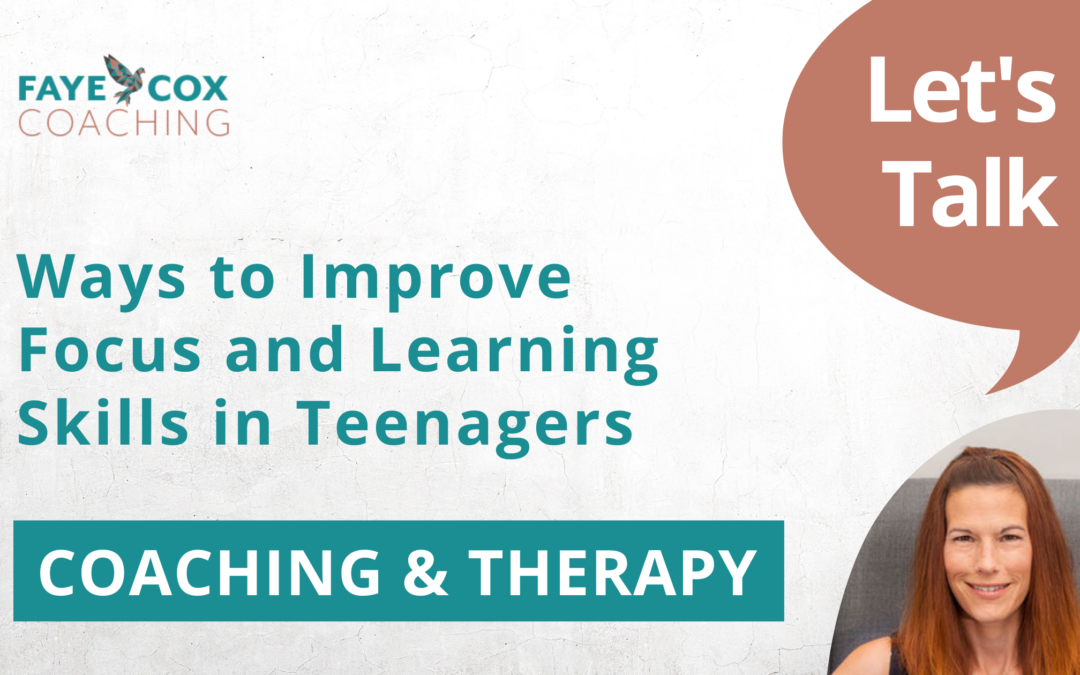
by Faye Cox | Nov 20, 2022 | Anxiety, Family, Parents, Teens, Tips
You may have noticed that there are some days when your teenager comes home and tells you everything about their day. They’ll be feeling motivated, have clear focus and can tell you some of the things they learnt that day. On other days, however, you’ll get grunting, vacant looks and you may even feel like they can’t even hear you talking at all.
These days can feel difficult for both of you. They may come home and genuinely not remember much of what’s happened in their day. It’s not deliberate so please don’t take it personally. It may be that your teenager has something else going on that is consuming their minds or their attention has been focused elsewhere for some reason.
We all know that if something really catches our interest then we will shift our entire focus to it, but if it’s not a subject we’re fully invested in then we can lack focus and attention for any length of time and it’s no different for our teenagers. In fact, with everything that’s going on in their everyday lives, including their brain development and hormones, it’s no wonder that some days they’re a little all over the place.
Having worked with teenagers for many years now I am here to support you to support them in the best ways you can and here are some ways to help them improve their focus and learning skills.
These will also help those with ADHD.
Keep the following points to hand when your teenager is doing their homework and needs to fully focus
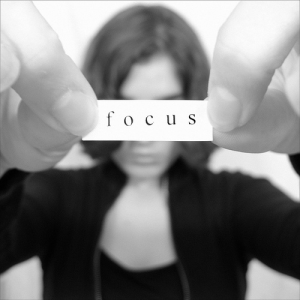
Create a distraction-free space for their learning
Make a designated space where your teenager knows they can go and do their homework in peace. Having a specific space enables them to take themselves away, whilst letting everyone else know that it’s time for them to focus and get on with their work.
Create a space that is well ventilated and lit, ideally with natural light if possible and away from everyone else so there is less noise from the TV or other family members. Your teenager may find white noise effective for helping them focus. Certain music playing quietly can also assist focus. Having one ear-pod in whilst working can be useful. This is one I see a lot with the teenagers I work with.
Be sure to put any other devices, gadgets, computer games and any other distractions away from your teenager at this time. These can become a huge distraction if within their eye line.
Once that task is over, encourage your teenager to put away everything that they have used before starting the next task and then get out everything they need for the next task. This way they only have what they need within their eye line.
Give your teenager a drink and some snacks to see them through and keep their blood sugar level up and to make sure they are hydrated whilst they work.

Grounding before homework
Before your teenager begins their homework, they can do a quick and highly effective grounding meditation to help prepare them for learning.
Grounding is an amazingly effective method to help clear the mind of any clutter that may be hanging around from the day. You can do this with them if you like as you will both benefit from it as it will also help to rid you and your teenager of any stress or tension you may be holding on to.
Here is a simple grounding meditation for you both to try.
- Sit down on the floor with your legs crossed
- Close your eyes and focus on your breath
- Simply notice the inhale and exhale of your breath
- Then make the inhales and exhales a little longer and deeper
- Feel yourself connect with the core of the earth and feel a complete sense of grounded-ness whilst picturing yourself as a tree with vast roots that are growing and reaching the centre of the earth.
- Bring your awareness back to the breath
- Take 3 long and deep inhales and exhales and come back to your awareness of the space around you
- Count to 5 and open your eyes
Notice how calm and grounded you feel ready to focus

Always set realistic goals for learning
Support your teenager to break down their tasks into manageable chunks and even use a brain dump to help them start a new task. Many people find starting a new task and transitioning between tasks difficult, so using a brain dump can help to get everything out of their head so they can break down what needs doing and how. This will free them from the overwhelm of it all.
Encourage your teenager to steer well clear of multi-tasking as this will escalate their overwhelm and create stress and anxiety. Plus, they won’t be able to do any of the tasks well and one task done well is worth more than two or three tasks done badly.
Use a planner to plan out homework with dates of when it will be completed by. Have set days and times as this will encourage good routine when it comes to learning.
Make sure that they are taking regular breaks from learning as this will increase productivity and focus. I encourage my teenagers to use the Pomodoro technique which involves full focus for 25 minutes and then a 5-minute break. Find what works best for your teenager as different things work for different people.
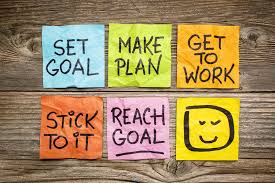
Remember that everyone is different, and these are just a few suggestions from my experience of working with teenagers who struggle with focus, anxiety and overwhelm when it comes to schoolwork and homework. These strategies have been very effective over the years. If your teenager is struggling in any of these areas, you can arrange a call with me to see where I can further support them.
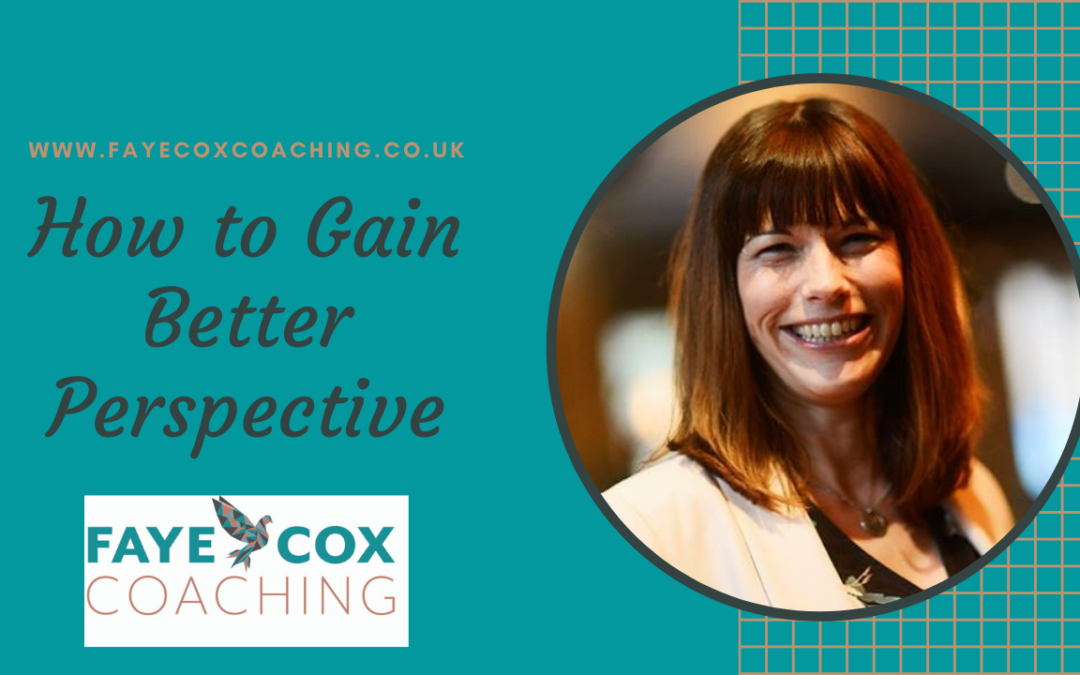
by Faye Cox | Jun 18, 2021 | Tips
Would you love to know how you can gain better perspective in any situation?
I’m here to tell you that it is possible and it’s a lot simpler than you may think.
We all find ourselves in situations where we may disagree with other people, and 9 times out of 10 when we’re in these situations we see things differently. We see things differently from the other person because of our map of the world, how we see things, our beliefs, our values and the experiences we’ve had in our life up until that point.
So today I want to give you a quick NLP (Neuro Linguistic Programming) technique that I use in my practice, to help you be able to see things from other people’s point of view, so you can put yourself in other people’s shoes in any situation. I call this the three pillars of perspective (also known as Perceptual Positions). You can physically do this and practice this technique over an over in preparation for when you find yourself in any given situation.
To start off with, there are three positions in the three pillars of perspective, position one, is you. That’s your position within any given situation or conversation, second position is the person you may be having that discussion with, It could be a situation at work, it could be something in your personal life, business, any given situation. A lot of the time you will find that this could be a 1 on 1 conversation, and you’re unable to see somebody else’s point of view. The third position, you are going to become a neutral participant within the conversation. You’re going to be the person who looks on the situation as an outsider, from a totally neutral perspective.
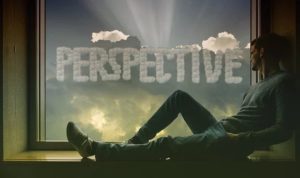
So how does it work?
To begin with, you can set up three different chairs in your living room, kitchen, at work in a conference room, wherever you happen to be. You can do this by yourself, you can also help your colleagues and employees do this, so when they’re in negotiations and communicating with other members of staff, or they’re trying to close a deal, any of those kinds of things, you can use this. Practise with them regularly.
Position 1 – Start off sitting in the first person’s chair so at this point you’re looking at things from your own perspective. Close your eyes and think of a situation that you may have found yourself in recently where you’re having a conversation, and the perspectives have been different, think back to the conversation that you were having and picture exactly what happened, what was said? How did you see things? How did the conversation go through your own eyes? Sit with that for a moment. Then I want you to do what we call in NLP which is break that state. So, open your eyes, think of something totally different, outside of the conversation, it might be what you’re having for dinner. It might be what your next meeting is. Just think about something entirely different.
And at that point, pick yourself up and move over to another chair, and this chair will be the second position.

Position 2 – Now you’re the other person in the conversation. When you’re ready, sit in that chair, close your eyes and put yourself in that person’s situation. Go back to the conversation, but this time you’re looking at it from the other persons. How did they see it? Imagine the situation from that person’s point of view, imagine stepping into their body and becoming them, and looking at you through their eyes, through their perspective and think back to what was said. What is their understanding of the situation? How did they see you and your actions in this situation? Once you’ve done that, open your eyes and break state again.
Now move to the third person’s chair.
Position 3 – Now you become the neutral third person. We are now the objective outsider. This person is somebody that you respect, somebody that you admire, somebody that you trust. We’re looking through their eyes now and seeing their perspective. Imagine that you’re watching this like a ‘fly on the wall’. Now it’s helpful here to picture yourself, to close your eyes and picture yourself as looking down on the conversation. We call ‘the helicopter view’, so you’re looking down on the conversation of these two people. You’re looking at something from a completely outside point of view and I want you to ask yourself these questions. How are these two people acting? Are they being fair to one another? Are they actively listening to what the other person is saying? Is the way that they are behaving, or the way that this conversation is going resolving anything or coming up with any plan or solution? Is one person being more dominant than the other.? What advice would you as that outside perspective, give both of these people to help them work out their differences?
Once you’ve done that, break state, again.
This is such a powerful tool to enable you to step into other people’s shoes, to see their perspective, but also step outside of the situation altogether and look in from a completely different viewpoint, because 9 times out of 10, that will help you to come up with resolutions and totally different answers to the ones that you were coming up with before when you’re only looking at something from your perspective.
It’s incredibly useful in life, your career and even in business for any situation you may find yourself in.
After doing this exercise, take a few minutes just to write down those different perspectives, write down what came out of that. What did you learn about yourself having done it? What did you learn about the other person? How do you want to move forward from here?
Like I said, this is a really great and very simple exercise that you can practice either yourself, with family members, with friends, with colleagues, so that you can deal with Conflict better and get better results for yourself and others.
Faye Cox Coaching – BELIEVING IN YOU UNTIL YOU DO TOO! If you’d like some support so you too can start believing in yourself, you can have a chat with me here
You can also subscribe to my You-Tube Channel where I release a brand new video each week talking about gaining perspective, limiting beliefs, changing the way you think and much more….
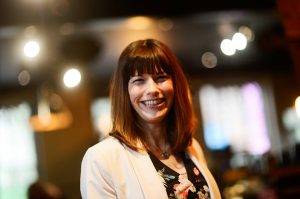

by Faye Cox | May 14, 2021 | Tips
When I speak to people about Personal Development, they automatically assume that I’m talking out deep diving in their inner world and digging out their limiting beliefs and baggage.
Although this is something that I do work on, Personal Development can do so much more.
So, here are my top benefits to starting your personal development journey today.
Now the first one is increased earning potential. Now who out there, doesn’t want to be earning more money, whether that be in their own business, in the corporate world, or in general in anything that you are looking to be achieve.
The second one is standing out from the crowd, now working on your own personal development, looking at your own personal values, your goals and boundaries. Getting all that set-in place and starting on that journey will help you stand out from the crowd because it will assist with Confidence building.

That brings us on to improving confidence. Now I think we can all be honest and say that we’d all like a little bit more confidence. We may have confidence in certain areas, because we’re used to doing things. We may lack that confidence in other areas where we need to learn a little bit more, where we haven’t done things for as long as those other things. So, I think there’s always room to increase confidence, and going on your personal development journey will increase that confidence in any area, your life or your business, or whether or in general, increasing your self-belief. Now for me, increasing my self-belief was one of the key things to me looking at when I decided to embark on my professional and personal development journey. Before I started there is no way I would be doing half the things I’m now doing, like creating You Tube channel, being visible in my business or being totally true to myself. So having done that myself, it’s one of the reasons I’m here talking to you about it now.
I know that most people will agree that they’d like to improve their relationships. Now whether that relationship be with a partner, your children, any other family members, friends, or even more importantly, which is the first and foremost relationship we have, and that is the relationship we have with ourselves. So, in order to improve those relationships, we need to improve our communication with ourselves and others and personal development can help you with that.
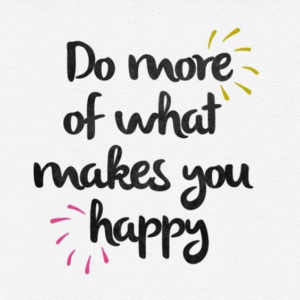
I think you will agree that we all want to be healthier and happier. When you look at yourself and you start to go in and look at those things such as those beliefs that you may have that you may want to get rid of, when you look at how you want to move forward in life. What do you want to take with you? What are the things you want to change in life?
Change is difficult.
We all find change a little bit scary, but once you start making those changes, more changes become a lot easier, which ties back into gaining confidence. I speak to a lot of people who talk about eating healthier, talking about being healthier, wanting to be happy, but then not taking those first steps to achieving it. There’s a lot of talking the talk but not walking the walk, and when you start to walk the walk, that’s when everything changes for you.

And finally, discovering your true values and your true purpose, what is it that you are here to do? What were you put on this planet to do? Now I know there are people out there who are already living their purpose, their career is everything they’ve always wanted to do. They wouldn’t dream of doing anything else. They feel empowered by it, they’re still fulfilled.
But there are a lot of people out there and I was definitely one of those people who was just going to work, I was just doing the do all of the time, and I came to a point in my life where I felt totally unfulfilled, and I’ll be completely honest, this was after I had my own children, that I sort of realised there must be more to life than this, and that’s when I started my own journey, and that’s how I became a Coach, because I looked at my true values, who I really was, what I was here to do, and it came so naturally, which again comes back into that self-belief and confidence. When we look at this all as a whole, these benefits of personal development all feed into one another.
If you’ve been thinking about going on your own Personal Development journey and would like some help to get started, you can give me a call or drop me an email at faye@fayecoxcoaching.co.uk
You can also check out my You Tube channel where you’ll find my Personal Development video and other useful tips and tools.












